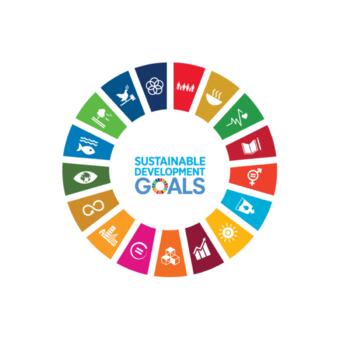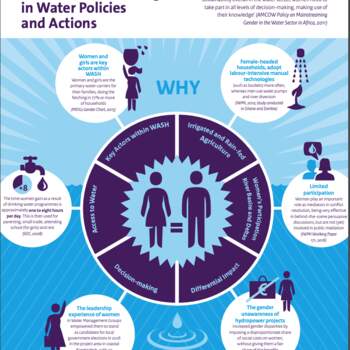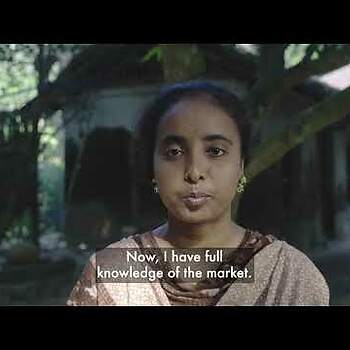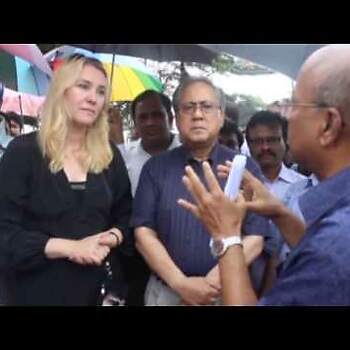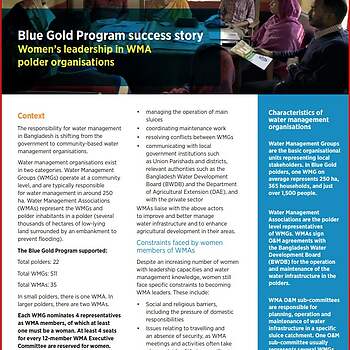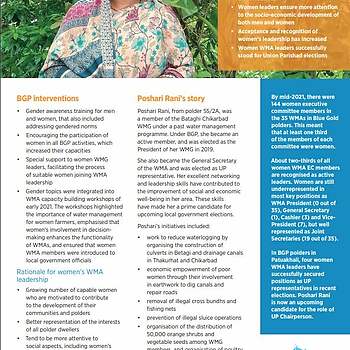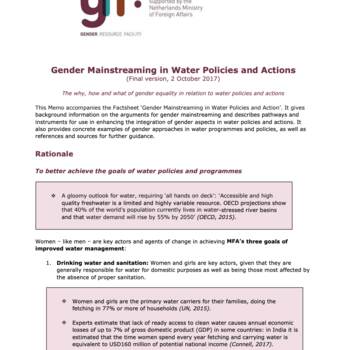Sustainable development Goals
The 17 interlinked Sustainable Development Goals (SDGs) succeeded the MDGs. They were designed to be a "blueprint to achieve a better and more sustainable future for all". They were set up in 2015 by the United Nations General Assembly (UN-GA) and are intended to be achieved by the year 2030; the set of SDGs is also referred to as Agenda 2030. The SDGs are more comprehensive than the MDGs; they also apply to both developing countries and developed countries.
SDG 5 and SDG 6 refer to gender equality and to water.
- SDG5: “Achieve gender equality and empower all women and girls”, with 6 outcome targets: ending discrimination and violence against women; eliminating harming practice; promoting shared domestic responsibilities; ensuring participation of women in leadership and decision-making; and ensuring access to reproductive rights and health. Fostering equal rights to (economic) resources is mentioned as a ‘means of achieving’, and logically includes access to water, in particular, for productive purposes.
- SDG6: "Ensure availability and sustainable management of water and sanitation for all”, with 6 outcome targets: Safe and affordable drinking water; end open defecationand provide access to sanitation and hygiene; improve water quality, wastewater treatment and safe reuse; increase water-use efficiency and ensure freshwater supplies; implement IWRM (Integrated Water Resource Management); and protect and restore water-related ecosystems.
From the establishment of the SDGs, their interlinkages have been emphasized. In practice this means that equal access to water, either for drinking (domestic) or for productive purposes (as irrigation), should be pursued.
Sources and further reading
2014: Quick Reference Guide on Integrating Gender Equality in Climate-Smart Development published for the Dutch Ministry of Foreign Affairs (MFA). This guide has fact sheets on Gender and Climate Change for five priority themes: Water, Food Security, Natural Resources, Energy and Disaster Risk Reduction. The policy cycle of MFA is described, indicating the opportunities and best practices per policy cycle phase for integrating gender into climate smart activities. The appendix contains a wealth of additional resources.
2013 - 2021: Blue Gold Program, Bangladesh, financed by EKN Dhaka and GoB. Good example of lessons learnt on gender mainstreaming in participatory water management, whereby both men and women become involved in actual water management. Blue Gold video's.
Gender-Mainstreaming-in-Water-Policies-and-Action
Gender Mainstreaming in Water Policies and Actions (Final version, 2 October 2017)
